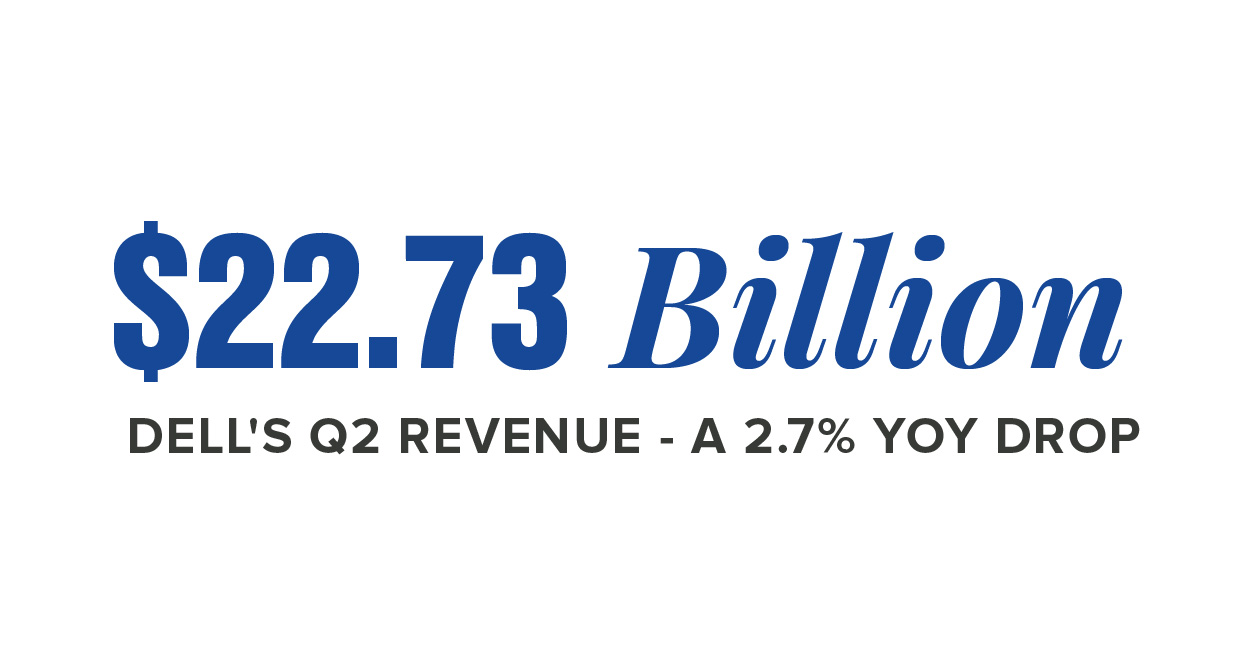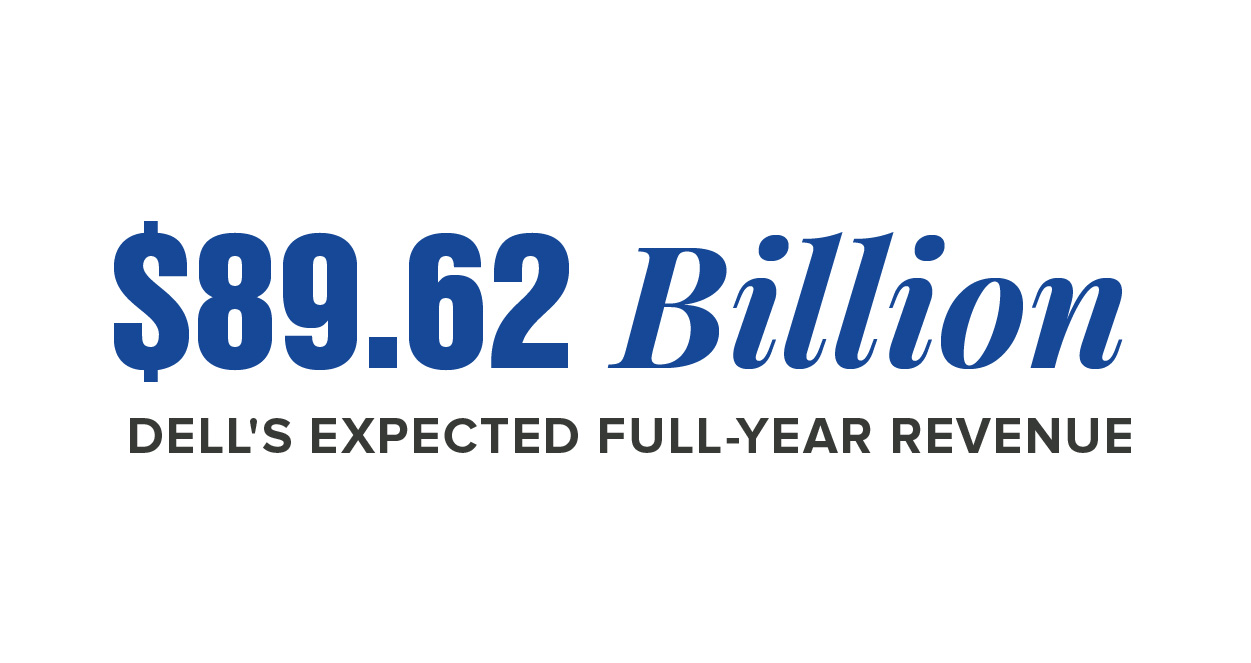
Tuesday, November 24, 2020
Will earnings boost Dell’s share price higher?
تم إعداد هذا المنشور من قبل سنشري للاستشارات


Dell’s [DELL] share price has flourished recently and, on 14 October, it closed at an all-time high of $70.65 — a 37.5% year-to-date gain. This narrowly beat its previous best close of $69.80, which it reached on 16 May 2019. While the stock has taken a tumble since, closing at $60.26 on 30 October, Dell’s share price has already recovered most of the value it lost in March. As of close on 20 November, Dell’s share price of $68.34 marked a year-to-date increase of almost 33%. As the company prepares its third-quarter results, due on 24 November, what should investors expect of Dell’s share price?
Despite a slow start to 2020 — which saw it spend most of January in the red — Dell’s share price has soared in recent months. On 18 March, its worst day of trading this year, Dell’s share price fell to an intraday low of $25.51. It went on to close at $28.87, down 43.8% for the year to date.


While Dell’s share price was relatively quick to recover most of its lost value, climbing to $42.54 on 26 March, it wasn’t until 29 June that the stock surpassed its February peak of $53.34 when it closed at $53.76.
Although the stock remained flat in the following days, it rallied on 16 July following an announcement that it was exploring the idea of selling its majority stake in virtualisation specialist VMware [VMW].
How has Dell been performing?
When Dell released its second-quarter earnings for fiscal year 2021 on 27 August, it announced earnings per share of $1.92. This beat the consensus estimate of $1.47 per share, delivering a surprise of 30.6%. This marked Dell’s third consensus beat in the last four quarters, but still translated to a 10.7% decline from the previous year’s Q2 earnings of $2.15 per share.
Meanwhile, Dell reported revenues of $22.73bn, which narrowly beat the Zacks Equity Research consensus by 1% and marked a drop of 2.7% from year-ago revenues. Mirroring its earnings results, this was the third time Dell has surpassed revenue estimates in the last four quarters.


This positive earnings report helped to push Dell’s share price up 6.1% to close at $66.21 on 28 August.
“In Q2, we saw strength in the government sector and in education, with orders up 16% and 24%, respectively, as parents, teachers and school districts prepare for a new frontier in virtual learning,” Jeff Clarke, COO and vice chairman of Dell, noted in a statement released alongside the results.


Looking ahead, analysts expect Dell to announce earnings of $1.36 for the quarter ended October, which would represent a year-over-year decline of 22.3%. Revenues are expected to drop 4% year-over-year to $21.93bn.
For the full year, analysts are expecting Dell to post earnings of $6.25 per share and revenues of $89.62bn, which would represent respective losses of 14.97% and 2.75%.


Is Dell a Buy?
In October, Paul Coster, analyst with JPMorgan, raised his target on Dell’s share price from $70 to $80 while maintaining an Overweight rating on the stock, according to The Fly.
The consensus among 20 analysts polled by CNN Money is to buy the stock. This rating is held by 10 analysts, with one rating the stock an Outperform and nine rating it a hold. The consensus given by Zacks, meanwhile provides a more bearish outlook, rating Dell’s stock a strong sell.
Among the 18 analysts offering 12-month forecasts for Dell’s share price on CNN Money, the median target stands at $73.50, with a high estimate of $85 and a low of $60. The median estimate would represent a 7.4% increase on Dell’s share price as of close on 20 November.
Source: This content has been produced by Opto trading intelligence for Century Financial and was originally published on cmcmarkets.com/en-gb/opto
Disclaimer: Past performance is not a reliable indicator of future results.
The material (whether or not it states any opinions) is for general information purposes only and does not take into account your personal circumstances or objectives. Nothing in this material is (or should be considered to be) financial, investment or other advice on which reliance should be placed. No opinion given in the material constitutes a recommendation by Century Financial or the author that any particular investment, security, transaction or investment strategy is suitable for any specific person.
Century Financial does not endorse or offer opinion on the trading strategies used by the author. Their trading strategies do not guarantee any return and Century Financial shall not be held responsible for any loss that you may incur, either directly or indirectly, arising from any investment based on any information contained herein.
















